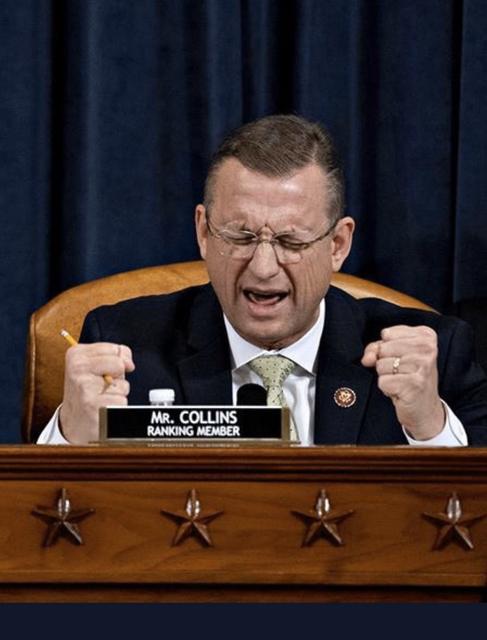CHAIRMAN ADAM SCHIFF: You've been asked to opine on the meaning of the term bribery, although you weren't asked to opine on the terms high crimes and misdemeanors. Bribery, for those at home, is the conditioning of official acts an exchange for something of personal value. The official acts we are talking about here are a White House meeting that President Zelinsky desperately sought and was deeply important to this country at war with Russia, to show the United States had this new president's back. That meeting was important, that meeting is an official act. The military assistance is even more significant, because Ukrainians are dying every day in their war with Russia. And so the withholding of military assistance to get these investigations, which you now have acknowledged Ambassador Volker, was wrong, the president to request, the idea of withholding that military aid to get these political investigations, should be anathema, repugnant to every American. Because it means the sacrifice, not just of Ukrainian national security, but American national security, for the interests of the president personally and politically.
Now, my Republican colleagues all seem to be upset about with this, is not that the president sought investigation of his political rival, not that he withheld a White House meeting and $400 million in aid we all passed on a bipartisan basis to pressure Ukraine to do these investigations. Their objection is that he got caught!
Their objection is that someone blew the whistle, and they would like this whistleblower identified! The president wants this whistleblower PUNISHED! THAT'S their objection, not that the president engaged in this conduct, but that he got caught! Their defense is, "Well, he ended up releasing the aid. Yes, AFTER HE GOT CAUGHT! It doesn't make this any less odious.
Americans may be watching this and asking, why should the United States care about Ukraine? Why should we care about Ukraine? And this was the import of the conversation in that Kyiv restaurant with Gordon Sondland holding the phone away from his head, because the president was talking so loud, what does the president ask in that call, a day after that now infamous call he had with Zelinsky, what is it he asked on that cell phone call? Not whether they had passed some new anti-corruption reform, no, are the Ukranians going to do the investigation. Meaning into Biden. And Sondland's answer is, they're going to do it. They'll do essentially anything the president wants. What's more telling is I think the conversation with Sondland has with Foreign Service officer Holmes afterwards, in which the president says that, basically, Donald Trump does not give an expletive about Ukraine. He cares about the big things. Mr. Holmes says, well, Ukraine's at war with the Russians, that's kind of a big thing. And Sondland's answer is, no, he cares about big things that affect his personal interests.
This is why Americans should care about this. Americans should care about what happened to our allies, who dies. Americans should care about their own national security, and their own president and their own constitution, and they will need to ask themselves, as we will have to ask ourselves in Congress, are we prepared to accept that the President of the United States can leverage official acts of military assistance, White House meetings to get an investigation of a political rival? Are we prepared to say, well, I get that's just what we should expect of a president of the United States? I don't think we want to go there. I don't think our founding fathers would have wanted us to go there. Indeed, I think when the founding fathers provided a remedy, that remedy being impeachment, they had a very concern that the president made may betray the national security interests of the country for personal interests. They put that remedy in the constitution, not because they wanted to willy-nilly, overturn elections, no, no but because they wanted a powerful anti-corruption mechanism when that corruption came from the highest office in the land.

